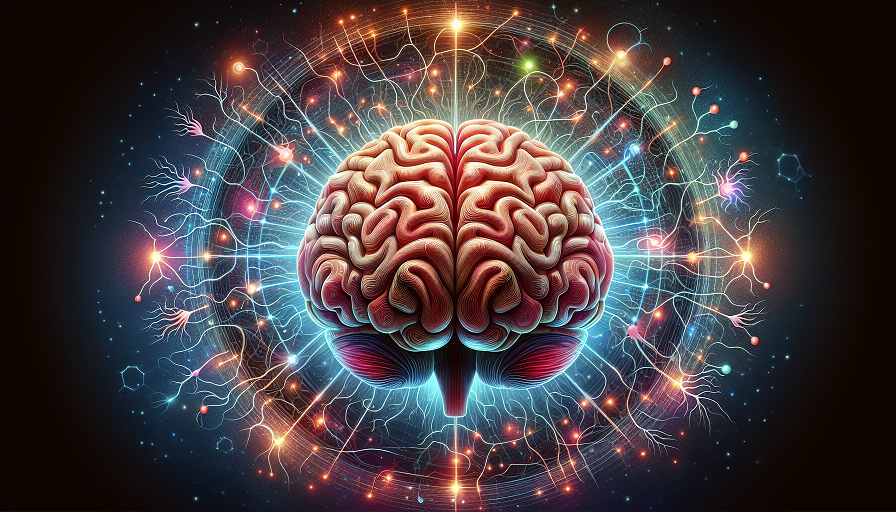
The phrase “gut feeling” isn’t just a figure of speech — it reflects a profound connection between the gut and the brain. Science now shows that this relationship goes far deeper than previously thought, influencing not only mood and behavior but also the brain’s remarkable ability to adapt and reorganize itself: neuroplasticity. Understanding how gut health impacts neuroplasticity opens up new possibilities for enhancing mental flexibility, learning, and resilience.
Contents
The Gut-Brain Connection: An Overview
The gut-brain connection refers to the bidirectional communication between the gastrointestinal (GI) system and the central nervous system (CNS). This relationship is mediated by the gut-brain axis, a complex network that includes:
- The Vagus Nerve: A major highway of communication, the vagus nerve sends signals between the brain and gut in real time.
- Gut Hormones: The gut produces neurotransmitters like serotonin, which affect mood, cognition, and neuroplasticity.
- Immune System Activity: The gut contains the largest portion of the body’s immune system, which plays a role in inflammation and brain health.
- Gut Microbiome: Trillions of microorganisms in the gut influence brain function through the production of metabolites and signaling molecules.
This intricate system ensures that changes in the gut are reflected in the brain and vice versa. In the context of neuroplasticity, gut health can shape how efficiently the brain forms new connections and adapts to challenges.
The Role of the Gut Microbiome in Neuroplasticity
The gut microbiome, a diverse community of bacteria, fungi, and other microorganisms, plays a central role in regulating the gut-brain connection. It impacts neuroplasticity in several ways:
Producing Neurotransmitters
The gut microbiome produces key neurotransmitters like serotonin, dopamine, and gamma-aminobutyric acid (GABA). These chemicals are essential for synaptic plasticity — the strengthening or weakening of connections between neurons. For example, serotonin, of which 90% is produced in the gut, influences mood, memory, and learning.
Generating Short-Chain Fatty Acids (SCFAs)
Gut bacteria ferment dietary fiber to produce SCFAs such as butyrate, acetate, and propionate. These compounds have anti-inflammatory properties and promote the production of brain-derived neurotrophic factor (BDNF), a protein that supports the growth and survival of neurons.
Regulating Inflammation
Chronic inflammation is a major barrier to neuroplasticity, disrupting the brain’s ability to adapt and repair itself. A healthy gut microbiome reduces inflammation by maintaining the integrity of the gut lining and modulating immune responses.
Communicating via the Vagus Nerve
Certain gut microbes stimulate the vagus nerve, directly influencing brain function. This communication can enhance cognitive flexibility, stress resilience, and emotional regulation, all of which are closely tied to neuroplasticity.
Gut Dysbiosis and Its Impact on Neuroplasticity
When the balance of gut bacteria is disrupted, a condition known as gut dysbiosis occurs. This imbalance can have far-reaching effects on the brain and neuroplasticity:
- Increased Inflammation: Dysbiosis can lead to a leaky gut, allowing harmful substances to enter the bloodstream and trigger systemic inflammation, including in the brain.
- Reduced BDNF Levels: Imbalances in the gut microbiome can decrease the production of SCFAs and BDNF, impairing synaptic plasticity.
- Mood and Cognitive Issues: Dysbiosis is linked to anxiety, depression, and cognitive decline, which can hinder learning and adaptability.
Addressing gut health is therefore essential for preserving neuroplasticity and overall brain function.
Real-World Evidence: How Gut Health Shapes the Brain
A growing body of research highlights the connection between gut health and neuroplasticity. Here are some key findings:
- Probiotics and Memory: A study in rodents found that supplementation with specific probiotic strains improved memory performance and increased BDNF levels in the hippocampus.
- Gut Microbiome Diversity and Cognitive Function: Human studies show that individuals with a more diverse gut microbiome tend to have better cognitive flexibility and emotional regulation.
- Diet and Neuroplasticity: Diets rich in prebiotic and probiotic foods have been associated with improved learning, reduced anxiety, and enhanced brain health.
These findings underscore the importance of nurturing gut health to support mental flexibility and resilience.
How to Improve Gut Health for Better Neuroplasticity
Optimizing your gut health doesn’t require a complete lifestyle overhaul. Small, consistent changes can have a big impact. Here’s how to get started:
Eat a Fiber-Rich Diet
Dietary fiber feeds beneficial gut bacteria, promoting the production of SCFAs. Include plenty of fruits, vegetables, whole grains, and legumes in your meals.
Incorporate Probiotic Foods
Probiotics introduce live beneficial bacteria to your gut. Add fermented foods like yogurt, kefir, sauerkraut, kimchi, and kombucha to your diet for a microbiome boost.
Reduce Processed Foods
High-sugar and processed foods can disrupt the gut microbiome. Focus on whole, minimally processed foods to maintain a healthy gut environment.
Stay Hydrated
Drinking enough water supports digestion and helps maintain the integrity of the gut lining, reducing inflammation and promoting a balanced microbiome.
Manage Stress
Chronic stress negatively impacts both the gut and brain. Practices like mindfulness, meditation, and yoga can reduce stress and enhance the gut-brain connection.
The Future of Gut-Brain Research
As our understanding of the gut-brain connection deepens, researchers are uncovering innovative ways to enhance neuroplasticity through gut health. For example, precision probiotics tailored to individual microbiomes could one day optimize brain function and resilience. Additionally, studying the gut’s role in neurodegenerative diseases may lead to new therapies for conditions like Alzheimer’s and Parkinson’s.
While much remains to be discovered, one thing is clear: a healthy gut is foundational to a healthy brain.
The link between gut health and neuroplasticity highlights the profound interconnectedness of the body and mind. By nurturing your gut microbiome, you can create a ripple effect that enhances brain function, adaptability, and resilience. From eating a fiber-rich diet to incorporating probiotics and managing stress, small changes can make a big difference.
So, the next time you enjoy a bowl of yogurt or a serving of sauerkraut, remember: you’re not just feeding your gut — you’re fueling your brain’s potential to learn, grow, and thrive.

